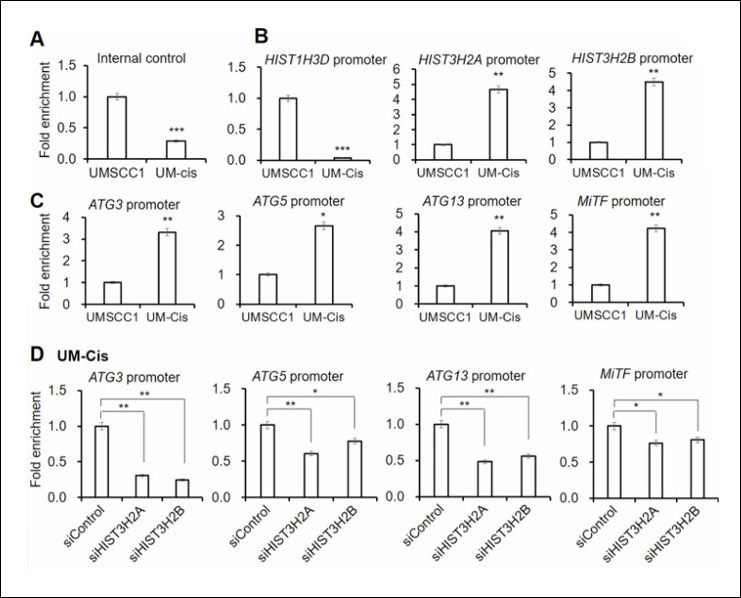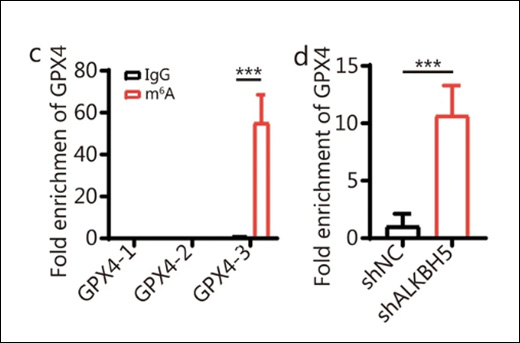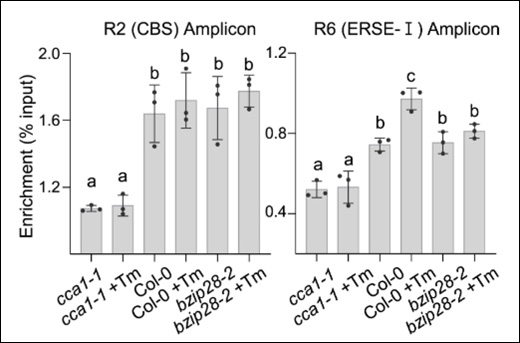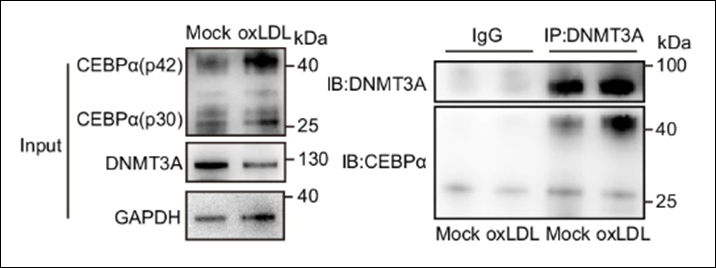Neuroblastoma, one of the most common pediatric cancers, is notorious for its aggressive nature and unpredictable behavior. To understand what drives this malignancy — and how it might be controlled — researchers have turned to epigenetics, the layer of regulation beyond DNA sequence that shapes gene expression and cellular identity. Among these epigenetic marks, DNA methylation stands out as a key player in genome stability, gene silencing, and differentiation.
Why DNA Methylation Matters
In healthy cells, DNA methylation helps establish and maintain cell type–specific programs. In cancer, this system often goes awry. Neuroblastoma cells in particular tend to lose DNA methylation globally, a change that destabilizes the genome and fuels tumor progression. By contrast, differentiated cells regain a more controlled and hypermethylated state. Measuring DNA methylation in neuroblastoma cells is therefore more than an academic exercise — it provides a window into how cancer cells might be reprogrammed into less malignant forms.
Differentiation and Epigenetic Remodeling
A study published in PLoS ONE investigated how neuroblastoma cells change when pushed toward differentiation. Researchers compared malignant SKNBE2 cells (“Mock”) with cells engineered to overexpress the non-coding RNA NDM29, which promotes a neuron-like state (“S1.1”). This setup allowed them to compare not only DNA methylation but also broader epigenetic and structural changes between the two cell types.
While the study included analyses of nuclear architecture, chromatin positioning, histone modifications, and relevant mRNA transcripts, one of the most striking findings came from DNA methylation.
Measuring DNA Methylation with EpigenTek
To quantify DNA methylation, the researchers used EpigenTek’s MethylFlash™ Global DNA Methylation (5-mC) ELISA Easy Kit. The assay measures the percentage of 5-mC across the genome, offering a sensitive and reproducible way to compare samples. By applying this kit to both Mock and S1.1 cells, the team could directly test whether differentiation altered the global methylation landscape.
The results were clear: S1.1 cells showed a 17% higher global 5-mC content compared with malignant Mock cells. This rise in methylation strongly suggested that differentiation restores a more stable and regulated epigenetic state.
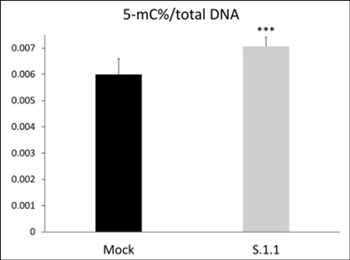
Results and Implications
The increase in global DNA methylation was not an isolated event — it tied into a broader epigenetic reset. Differentiated cells also showed upregulation of DNMT1, the enzyme that maintains methylation, and suppression of oncogenic NF-κB–related genes. Together, these findings highlight how DNA methylation acts as a marker and potential driver of the transition from malignancy toward a differentiated, neuron-like identity.
The implications are significant. By monitoring global methylation, researchers may be able to track cancer cell differentiation and identify therapeutic strategies that push tumors into less aggressive states. DNA methylation could also serve as a biomarker for prognosis or treatment response.
Looking Ahead
This study reinforces the importance of DNA methylation as both a readout of cancer state and a potential therapeutic target. While additional epigenetic analyses confirmed that nuclear shape, chromatin domains, and histone modifications also shift during differentiation, DNA methylation provided one of the clearest and most measurable indicators of change.
Future research will explore whether actively manipulating methylation enzymes can reproduce these effects in living models — and whether global methylation assays can be applied as diagnostic or prognostic tools in the clinic.
EpigenTek’s Role in Advancing Epigenetic Research
By focusing on DNA methylation, the researchers uncovered a global increase in 5-mC levels when neuroblastoma cells differentiated into neuron-like cells. This hypermethylation paralleled reduced malignancy and supported the idea that epigenetic reprogramming is central to controlling cancer behavior.
The MethylFlash™ 5-mC ELISA Easy Kit played a pivotal role in making this discovery possible, providing a fast and reliable method for quantifying methylation levels across the genome. As scientists continue to probe the epigenetic roots of cancer, tools like this remain essential for linking molecular changes to disease outcomes and therapeutic potential.
EpigenTek offers a full line of DNA methylation kits, high-quality antibodies, and a wide range of other epigenetic products designed to assist researchers in advancing their studies with confidence and efficiency.




 Cart (0)
Cart (0)






